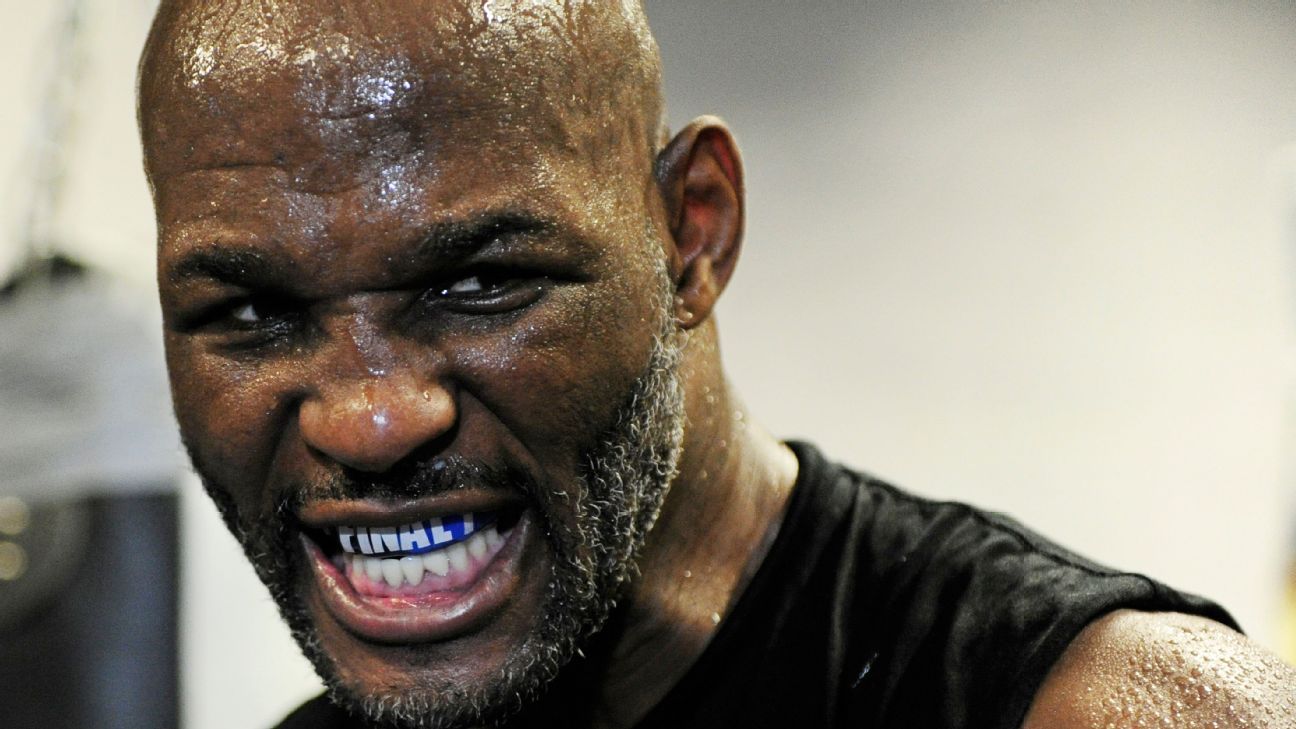The ballot for the International Boxing Hall of Fame 2020 election cycle was released on Tuesday and it is absolutely loaded in the modern fighter category, namely because the rules were modified in July.
The waiting period was reduced from five years in retirement to three years. As a result, instead of the usual three annual additions — taking the place of the three boxers elected the previous year — the new ballot has 12 new names to go with the 29 holdovers from last year. It doesn’t just include fighters whose last bout was in 2014, but also those whose careers ended in 2015 and 2016, meaning a slew of great names for the new ballot.
Dan Rafael and Steve Kim serve up their reaction to the new ballot:
What’s good about the new system?
Rafael: This year in particular it means an influx of outstanding names on the ballot because of the changes. It means three years worth of fighters were added to the ballot as well as some who had been left off even though they have been eligible for quite some time. It also means there are numerous deserving fighters that should be elected, even though only three will be voted in (unless more than three get 80 percent of the vote).
Kim: This is really is interesting, given that most major sports have a five-year waiting period. I wonder if this rule has been changed in part to entice recently retired boxers to stay retired. The change also allows fighters with distinguished careers to get their just due for their accomplishments quicker and not become forgotten. This game has a way of moving on and the spotlight can fade so fast — even for those who are legends. Why not let them be immortalized a couple of years earlier?
What’s bad about the new system
Rafael: I wanted the Hall of Fame to keep it at five years. That’s a good number of years to be able to legitimately asses a fighter’s career. The five-year window works well in baseball and I feel it was an ideal number in boxing. Fighters going idle for three years and then coming back is not that uncommon. Not fighting for five years and then returning is much rarer. So even though there are a few guys who boxed after they had been elected after five years in retirement (for the trivia buffs, they are Alexis Arguello, Sugar Ray Leonard, Jeff Fenech, Azumah Nelson and Virgil Hill), the chances somebody will be elected after three years in retirement and return are much greater. I don’t like that.
Kim: Not sure that I see anything bad about this new rule; again, if it becomes an impetus for boxers to stay out of the ring, while they await their call to Canastota, New York. Of course, nothing would keep these same guys from making comebacks as Hall of Famers after their inductions but that’s a whole other discussion.
Biggest surprise
Rafael: Finally seeing two names on the ballot: former lightweight and junior lightweight world champions Diego “Chico” Corrales and Joel Casamayor, great rivals who fought each other three times. They should have been on many years ago. Casamayor retired in 2011 and Corrales, the winner of the perhaps the greatest fight in boxing history against Jose Luis Castillo, last boxed in 2007 and died tragically later that year. As a member of the committee that helps set the ballot for the modern category, I have advocated for their inclusion and I’m glad to see it finally paid off. Whether you think they should be voted in or not is not the point. They deserve to have their fine careers assessed and voted on. Now that they are on the ballot, that process can finally take place.
Kim: Vuyani Bungu, who had a distinguished career fighting out of South Africa. His last professional bout took place in 2005 (a decision loss to Thomas Mashaba), and you figured that not many would remember him. Nowadays, it’s much easier to track boxers from afar in the digital age, but when Bungu fought, you had to scour wire reports and wait for the latest boxing magazines to arrive a couple of months later to get results of his bouts.
Bungu became a world champion in 1994 as he defeated the accomplished Kennedy McKinney for the IBF 122 pound title, in the Ring Magazine “Upset of the Year”. But he wasn’t a one-hit wonder as he racked up 13 successful title defenses of that crown. It wasn’t until Bungu moved up in weight and faced “Prince” Naseem Hamed for the WBO featherweight title that he was defeated, as he was knocked out in four rounds.
That loss may have signaled the end of his physical prime, but even after his loss to Hamed, he still competed well with the likes of Lehlo Ledwaba (a future belt holder) and twice against Takalani Ndlovu, before his last bout with Mashaba. Fighting mostly in South Africa, he was relatively unknown and overshadowed. Here’s hoping he isn’t forgotten.
Who should be the first woman to be inducted?
Rafael: This is the first year there is a category for female fighters. Electors can vote for three and two will be elected. To me it’s a no-brainer. Two who are on the ballot who should be absolutely automatic to be elected are Laila Ali and Christy Martin. There are other fine candidates, but Ali and Martin are the biggest names who meant the most to the sport, and they also have massive accomplishments.
Kim: In many respects a Hall of Fame is about impact, it isn’t just about who was the absolute best. While other female boxers are more highly regarded, it was Christy Martin, “The Coal Miner’s Daughter” from West Virginia, who put women’s boxing on the map in the mid-1990s. Martin became a regular component on Don King cards, eventually becoming a feature performer on Mike Tyson’s pay-per-view shows. She became a sensation as she scored a series of eye-opening stoppages, prompting Sports Illustrated to put her on the cover of their April 15, 1996, edition.
Martin was a boxing trailblazer.
Yes, there will be many more deserving women who will eventually get the call from the Hall, but Martin should be the first one.
One fighter you believe should definitely be inducted from the ballot
Rafael: If I could pick only one of the 12 men added to the ballot it would have to be Bernard Hopkins. It’s not even a remotely hard pick for me. The Hall of Fame is for great fighters, and he is among the greatest of the greats, period. He was undisputed middleweight champion, set the record for most consecutive defenses (20) and also won the light heavyweight title. He was in numerous major fights and he has the resume. In my 20 years covering boxing he is, with the exception of Roy Jones Jr., Floyd Mayweather Jr. and Manny Pacquiao, the best fighter I ever covered.
Kim: Who really stands out is Bernard Hopkins, who retired with a ledger of 55-8-2 with 32 KOs. But his career really can’t be defined just by his impressive record. Despite losing his pro debut in 1988, he was able to hone his skills to win the IBF middleweight title in 1995 by stopping Segundo Mercado in seven rounds.
From there he had a record run of 20 successful title defenses, unifying the division in 2001 by defeating Keith Holmes and then Felix Trinidad (handing the Puerto Rican superstar his first loss). With this resume at 160, Hopkins is considered an all-time middleweight great.

